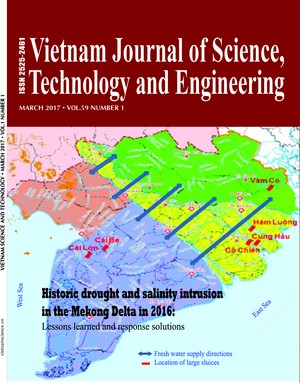Designing functional markers to identify the candidate gene SRWD2 involved in salt tolerances of Vietnamese rice landraces.
Tóm tắt
Salinity is one of the major abiotic stresses, and it limits rice production inmany worldwide areas. A lot of attention has been paid to developing rice
salinity tolerance to cope with climate change. This study is based on the
genome sequence databases of 36 Vietnamese landraces. The candidate gene, SRWD2, has been predicted and identified. The salt responsive WD40 protein 2 is involved in salt tolerance yield of nine rice landraces. Specifically, nine homologous segments of the sequences were found to be components of the CSD nucleotides, which is shown to be similar to the reference genome LOC_Os02g48964.1 and LOC_Os02g48964.1 CDS, respectively. At the same time, the functional marker, SRWD2add14, was designed to identify the candidate gene, SRWD2, based on its size as 150 bp (candidate gene tolerant to salinity) and 136 bp (different sequences to compare SRWD2-reference genome sequence). The findings show that Mot bui do landrace carries the candidate gene, SRWD2 (homozygote). The rice genotype should be used as a potential material for rice breeding to develop salt tolerance in rice varieties.




